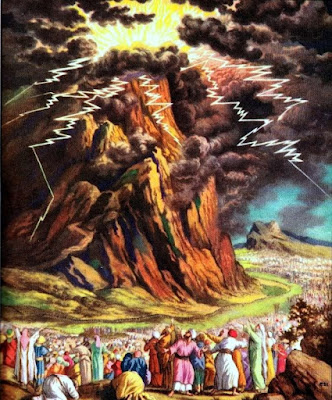My day job is what’s normally called a “white collar” job. Most American jobs are.
Recently, I was doing a lot of digging. Digging is more of a “blue collar” job.
And while I was digging, I was listening to the Bible, ‘cuz that’s what I do. I was listening to the Gospel of Matthew.
And because I was in the midst of so much manual labor at the time, I saw the parables of Jesus through more of a blue collar lens.
 It surprised me, seeing them like that. For the first time I realized – really realized – that Jesus told blue-collar stories. I observe that while he hung out with white collar guys (like tax collectors and perhaps Lazarus, and the rich guys who sought him out for healing), he never told white-collar stories. He told blue-collar stories.
It surprised me, seeing them like that. For the first time I realized – really realized – that Jesus told blue-collar stories. I observe that while he hung out with white collar guys (like tax collectors and perhaps Lazarus, and the rich guys who sought him out for healing), he never told white-collar stories. He told blue-collar stories. Yes, a larger portion of first century jobs were blue collar jobs. But this is more than that. Jesus is going out of his way to reach the scruffy folks, the one that didn’t matter as much as the good folks, the people with position and influence.
I think in these terms: if Jesus started his church-planting work among the calloused-handed working class, I wonder why our church-planting efforts do things differently. Do we judge His work as insufficient, or unworthy?
I observe that Jesus handled money so very differently than modern churches do. He had a few (presumably wealthy) patrons, and supplemented that with miracles (coins in a fish’s mouth, multiplying meals; I wonder how often he did that?). By contrast, we generally work to attract upper-middle-class folks and then preach tithing to them: guilt or obligation as the means of paying the rent.
Rent. Jesus never did seem to have a place that he needed to pay rent on. That’ll help keep the expenses in line. No building to support (though he did preach in synagogues when invited). And he didn’t draw a salary from the ministry.
I am reaching the conclusion that this blue-collar thing, this is who Jesus really was. When he humbled himself (Philippians 2), He went all the way. Jesus loves to reach the folks in the gutters because that’s who He was when He was on Earth. That’s where He lived.







